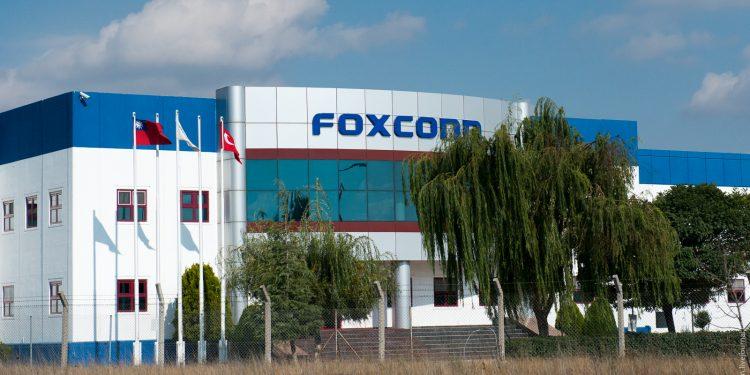Foxconn, the prominent manufacturer of iPhones, is placing a significant bet on electric cars and restructuring its supply chains to adapt to the evolving dynamics between Washington and Beijing. In an exclusive interview, Foxconn’s Chairman, Young Liu, shared insights into the company’s future direction.
Liu emphasized that while Foxconn is diversifying its supply chains away from China, electric vehicles will be the driving force behind the company’s growth in the coming decades. As tensions between the US and China escalate, Liu stressed the importance of being prepared for potential challenges.
“While we hope for peace and stability between the two countries, as a business and CEO, I have to consider the worst-case scenario,” said the 67-year-old chairman from his office in Taipei, Taiwan.
To mitigate potential risks, Foxconn has initiated “business continuity planning,” including the relocation of certain production lines associated with “national security products” from China to countries like Mexico and Vietnam. These products likely refer to servers manufactured by Foxconn that are used in data centers and may contain sensitive information.
Foxconn, officially known as Hon Hai Technology Group, began its journey in 1974, initially producing TV knobs. Today, it is a global technology powerhouse with an impressive annual revenue of $200 billion (£158.2 billion). While it is renowned for manufacturing over half of Apple’s products, including iPhones and iMacs, it also counts Microsoft, Sony, Dell, and Amazon among its clients.
For decades, Foxconn has thrived on a business model that involves designing products in the US, manufacturing them in China, and selling them worldwide. However, as geopolitical tensions strain relations between the US and China, Foxconn finds itself in a challenging position, caught between the two largest economies that have fueled its growth.
The United States and China have ongoing disputes over various issues, including trade and conflicts like the situation in Ukraine. The status of Taiwan, where Foxconn is headquartered, poses one of the most significant potential flashpoints. While the US has expressed support for Taiwan under President Joe Biden, China’s leader, Xi Jinping, has repeatedly emphasized “reunification.”
Shihoko Goto, the deputy director for the Asia program at the Wilson Center in Washington DC, described the situation as strategic competition between the US and China, with Foxconn caught in the middle.
However, Liu believes that Foxconn’s business model, which relies on US designs and Chinese manufacturing, is far from over. He highlighted the significance of job creation and mentioned that countries, including China, want to support their workers. Liu acknowledged that some overseas clients have expressed interest in relocating production away from China due to “de-risking” initiatives, but he noted that it remains their decision, not Foxconn’s.
Apart from geopolitical factors, COVID-19 has also prompted companies to consider diversifying their supply chains away from China. Foxconn faced challenges during the pandemic, including protests and riots at its factory in Zhengzhou, China, which is the largest iPhone plant globally. The company had to navigate Beijing’s stringent COVID-19 policies, leading to disruptions in transportation and worker concerns. Liu admitted that he should have halted production in such circumstances, even if it risked upsetting clients like Apple.
Looking ahead, Liu sees electric vehicles as the next major opportunity for Foxconn. Drawing a parallel with iPhones, he highlighted the company’s familiarity with advanced technology and stated


